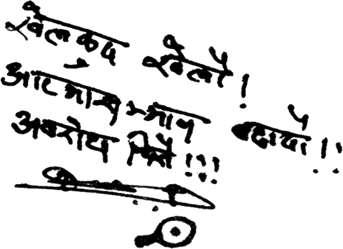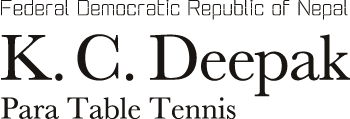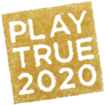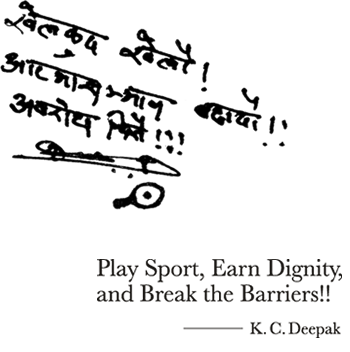




© Keita Yasukawa

Sport is what gives me my get-up-and-go. Sport gives me the courage to take on challenges. Para-sport has the power to move society.
Table tennis always motivates me and gives me courage. I began playing table tennis in elementary school. What first got me into it was the courage to make the leap and join in when my friends were playing table tennis. On seeing my play was better than they’d expected, they immediately accepted me as one of them.
That was my first experience of feeling that my courage had opened up a path for me, and was a major life event. I carried on playing table tennis, which powerfully widened the horizons of my life and made me brighter and more positive. Even if you have some type of impairment, you should face yourself fair and square in a positive manner. And from there, you are able to gain the courage to take the leap and involve yourself in the wider world. With this more outgoing attitude and by taking the initiative in communicating with people, it will become easy for you to put aside any worries and become a part of the social community.
I believe that positive energy has the power to attract others’ positive energy.
Sport taught me that positive attitudes create a positive chain reaction.
Yet, there are still a lot of people who treat us as having a serious disease. Even we have different types and degrees of impairment, but there are still many people with impairments who can play sport. I believe that people like this who take up a sport can change the general social prejudice against impairment. The most important thing for impaired people is to focus not on what they can’t do, but always on what they can do.



At the age of one, I contracted bone tuberculosis, which apparently damaged my spinal cord.
From that time on, the lower half of my body became increasingly paralyzed, but medical technology in Nepal at the time was not yet at a level where the cause of it could be identified. It was found to have been caused by bone tuberculosis only quite a bit later. From as far back as I can remember, I have lived my life in a wheelchair. I have no recollection of a time when I was able to stand on my own two feet. Nevertheless, I have never thought of myself as unfortunate.
Starting with my elementary school encounter with table tennis, the courage, self-confidence and power that I have gained from sport has enabled me to take up a variety of challenges. One such challenge is study.
I studied architecture at Kathmandu Engineering College and Tribhuvan University, and was the first physically impaired person in a wheelchair to graduate in architecture in Nepal. Just because one might have an impairment, or because there is no precedent for something, is no reason not to take on a challenge. Yet, if I hadn’t been involved in a sport, I might not have thought to take up the challenge of getting a bachelor’s degree. Furthermore, it is thanks to sport that I am now able to view the world from different angles.
I believe all of the challenges I have taken up so far started from the table tennis challenge I mustered the courage to take up at elementary school.

© Keita Yasukawa
I am currently involved in a wide variety of activities for para-sport, starting with my role as a member of the Athletes’ Committee of the Asian Paralympic Committee, Vice Secretary-General of the Nepal Paralympic Committee, and founding member of the National Physical Disabled Table Tennis Association-Nepal.
Para-sport is still in the development stage in Nepal. Let’s take the Paralympic Games as an example. Nepal has participated in the Games since 2004 in Athens. Unfortunately, however, to date only one or two Nepalese athletes have gotten to participate by way of the special entry provided by the International Paralympic Committee. It is true that the financial support from the government for para-sport is not enough, so that people in a position like myself have to support ourselves in several ways. Great numbers of people know the emotive power of sport, but the number of people who realize the potential of para-sport is still quite small. Spreading the power of para-sport may well take some time, but I believe it’s important to continue grass root activities.
At the same time as pursuing the cause of sport for people with impairments, as an architect, I am also putting my efforts into furthering the cause of barrier-free infrastructure. However, the idea of barrier-free is still a very new one in Nepal. Furthermore, as you well know, we have the Himalayas in the north, meaning there is very little even terrain, which makes barrier-free a very difficult thing to attain there. Yet, compared with ten years ago, barrier-free has progressed quite a lot in Nepal, and that is where I draw hope from. When it comes to these types of activities, the most important thing is, whatever you do, to continue with your efforts.

When I was young, the situation of para-sport in Nepal was quite poor. So, as a para-table-tennis player, while I made it to the top nationally, I had hardly any experience of big international tournaments. My wish is that today’s young athletes will take it upon themselves to go overseas and face the challenge of discovering their potential.
My role is to provide such young athletes with the strong motivation to do that. If I hadn’t taken up sport myself, I wouldn’t have gained the courage to break out of my shell and put myself out there. For that reason, I am doing my best to do away with the kind of situation where someone has been blessed with the will to go forwards and the talent to do it but lacks the opportunity.
Together with this is a very important matter that can never be forgotten. That is, in para-sport, competing is not necessarily the most important thing. Para-sport’s greatest attraction is how people can acquire courage and confidence by playing sport, and in the huge potential power of para-sport to bring about changes in society. Nepal is still on the way to changing people’s consciousness regarding impairment. We must be tireless in constantly working for this change. The development of para-sport is an absolute necessity if Nepal is to make future progress.
In 2018, the 3rd Asian Para Games are to take place in Jakarta, Indonesia. I very much hope that lots of para-athletes can be trained for this event, capable of the kind of performance that will attract great numbers of spectators. And in our sights beyond that is the Tokyo 2020 Paralympic Games. I want to engage in activities that will firmly set our Nepalese athletes on the path to participating in Tokyo, not on the small scale allowed by the International Olympic Committee’s special provisions, but as part of an official representative Nepalese team. My hope is that the Tokyo 2020 Paralympic Games will be a stage on which para-athletes from Asia can create a legacy.

© Keita Yasukawa

© Keita Yasukawa
My life to date has been characterized by the heartwarming support of numerous people around me, and the power I have gained from sport. So my responsibility now, having been such a beneficiary, is to support children with impairments. Another responsibility is to put my experience and knowledge to work in building an ever better society.
The confidence I have gained from sport and the joy in being accepted by those around me make my life all the more enjoyable. The first thing is to have courage and make that first step. Without the first step, there will be no second or third step, either. It is important to move forward, train yourself physically and mentally through sport and not lose sleep over things.
There is still a mistaken tendency among people in general to see those with even small impairments as not only physically, but mentally, impaired as well. There are people with small enough impairments for them to live life pretty much as physically unimpaired people do, while there are many with severe enough impairments to prevent them from playing a sport even if they wanted to. Simply dividing people into the two groups of “impaired” and “unimpaired” is a mistake.
Whether impaired or not, we as humans have to live our lives helping one another. Most of the people of Nepal experienced this for themselves at the time of the April 2015 Nepal earthquake. A huge disaster like that made us realize one thing: all people are equally powerless, and the importance of life is equal to all. We must cooperate with and respect each other if we are to rebuild our country.
It was a heartbreaking occurrence that caused enormous damage and in which great numbers of people lost their lives, but if there is any legacy from it that can be relayed to the future, it is the principle of “all people are equal” which was embraced by those who survived in the face of disaster.
But, even still, completely changing the general view people have of people with impairments will be no easy task – that’s for sure. It will take time. The most important thing for us is to keep going. We have to keep pushing the message that “all people are equal” to society in general, keep telling the younger generation, and educate our children. I will stay up there at the forefront, staying positive, taking courage, and continuing to spread this message.



Born in 1978 in Kathmandu, Nepal.
Lost use of lower body at one year old due to bone tuberculosis, and thereafter confined to a life in a wheelchair.
Overcame the restrictions of impairment by taking up various challenges at a young age, such as enjoying table tennis with physically unimpaired friends.
Later in life, studied architecture at Kathmandu Engineering College and Tribhuvan University, becoming the first wheelchair user in Nepal to graduate with a bachelor’s degree in architecture.
Came to Japan in 2007 as an intern on a program run by a Japanese company to develop leadership skills among people with impairments in Asia and the Pacific, and studied mainly universal design and sport for the people with impairments.
Currently working in his home country, Nepal, to promote barrier-free design, and giving his support to securing a future for para-athletes in a member of the Athletes’ Committee of the Asian Paralympic Committee, vice secretary-general of the Nepal Paralympic Committee, and founder of the National Physical Disabled Table Tennis Association, Nepal.